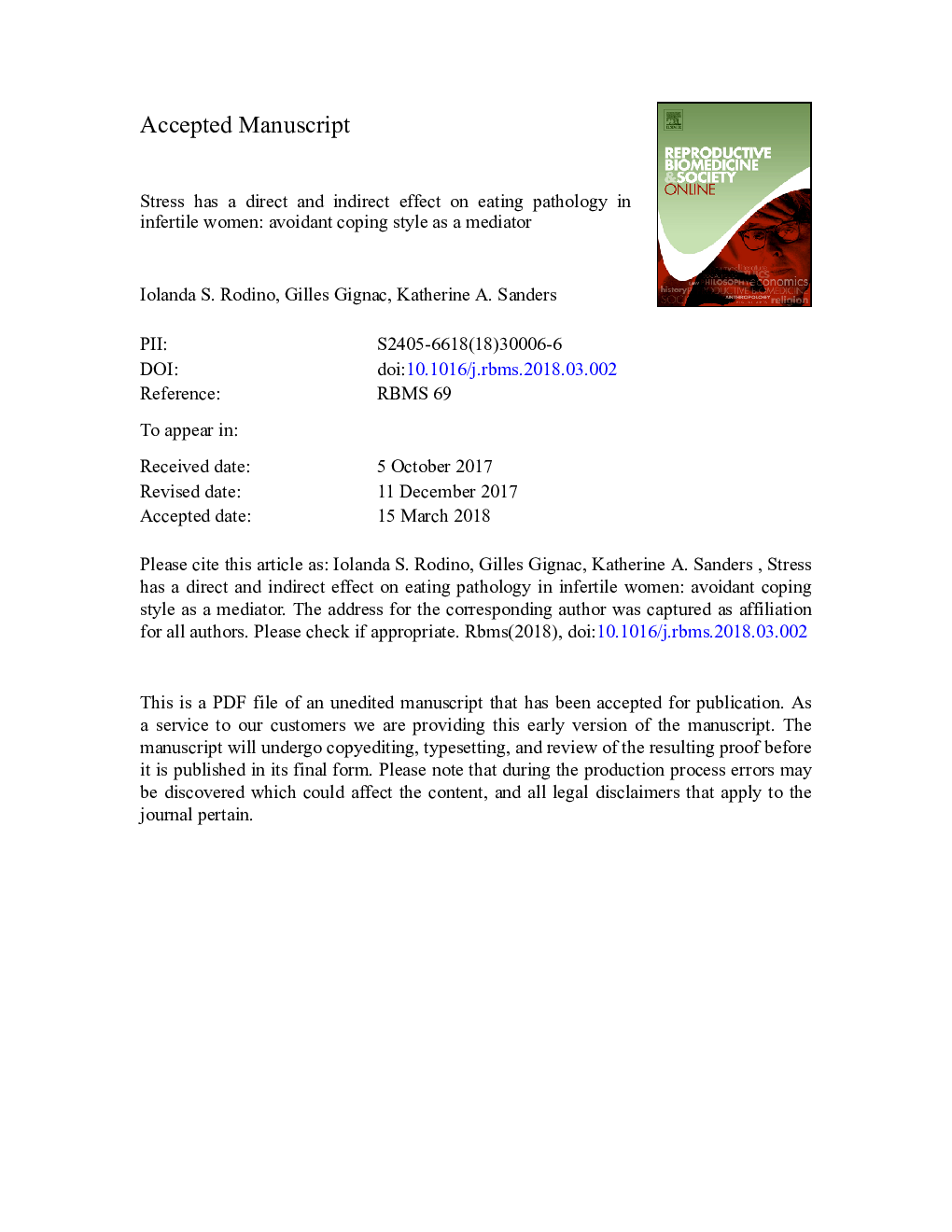| Article ID | Journal | Published Year | Pages | File Type |
|---|---|---|---|---|
| 7526983 | Reproductive Biomedicine & Society Online | 2018 | 26 Pages |
Abstract
Patient-perceived stress and avoidance-oriented coping strategies are mental health risk factors well documented within the infertility literature. Relatedly, these factors are associated with maladaptive eating behaviours known to influence reproductive functioning. This study aims to investigate the interconnection between perceived stress, avoidant coping style and eating pathology in infertile women, and to determine whether avoidant coping style mediates the relationship between stress and eating pathology. A multicentre cross-sectional study of 416 women (aged 20-47 years) was completed. Women were assessed on the Eating Disorder Examination Questionnaire, the Perceived Stress Scale and the Brief COPE. Correlational matrices, principal components analysis and structural equation modelling were used to develop a measurement model to test the avoidant coping style mediation hypothesis. Results showed that perceived stress had a direct effect on maladaptive eating behaviours [β = 0.21; 95% confidence interval (CI) 0.065-0.346; P = 0.005]. Furthermore, a statistically significant indirect effect between perceived stress and maladaptive eating via avoidant coping style was also observed (β = 0.14; 95% CI = 0.017-0.267; P = 0.018), indicating partial mediation. These findings highlight that both perceived stress and avoidant coping style are important psychotherapy targets to consider in infertile women presenting with eating pathology.
Related Topics
Health Sciences
Medicine and Dentistry
Obstetrics, Gynecology and Women's Health
Authors
Iolanda S. Rodino, Gilles E. Gignac, Katherine A. Sanders,
